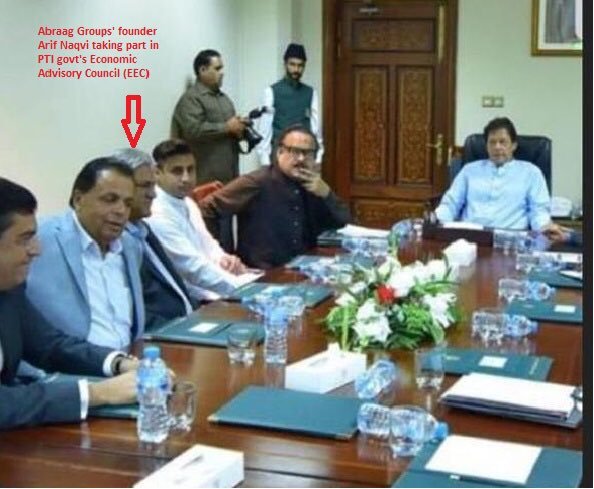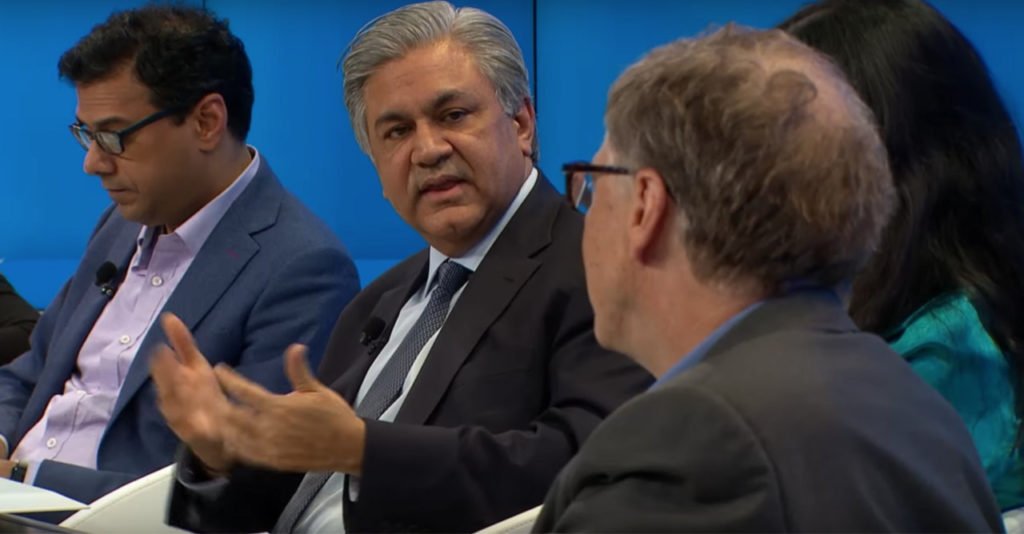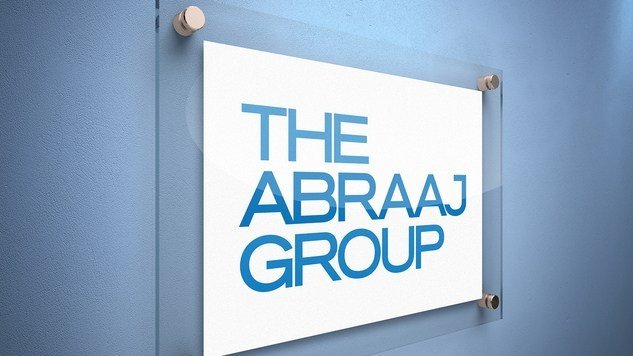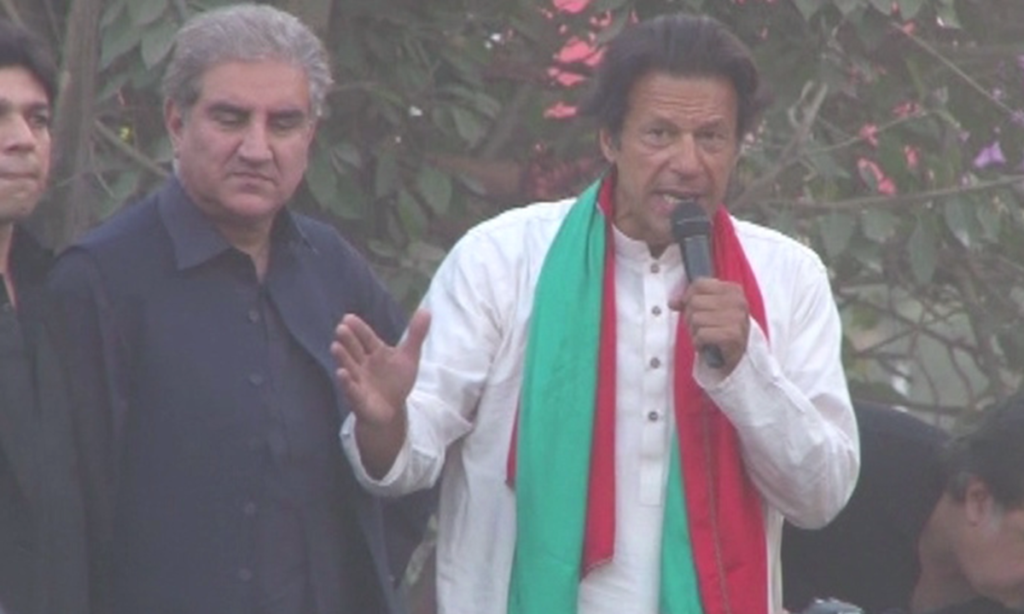Pakistani swindler Arif Naqvi, the man behind the world’s largest private equity insolvency case was arrested on 10-April 2019 at London Heathrow airport on conspiracy, wire fraud and securities fraud charges in US. When he was detained, the prosecution claimed of the seven phone numbers he offered to the authorities to notify about his arrested were that of the President of Pakistan, Arif Alvi, Prime Minister of Pakistan, Imran Khan and of other influential politicians in Pakistan.

Pakistani swindler Arif Masood Naqvi (born 13 July 1960 in Karachi, Pakistan) was the founder and chief executive of The Abraaj Group, a private equity investor that operated in Africa, Latin America, Middle East, Turkey and Central Asia. Naqvi founded the Group in 2002 which started with 60 million USD in assets under management and as of 2017, managed US$13.6 billion.
His shrewd ability to make money, attracted big-name investors from the region and beyond. Some of the most respected people in Dubai and the UAE put their money in Abraaj, as well as global investors such as the Bill and Melinda Gates Foundation, the World Bank, US financial institutions, US retirement and Pension Funds, US investment advisers and an agency of the US government.

Pakistani swindler Arif Naqvi is accused of defrauding investors of millions of dollars using his role as founder and chief executive of the now insolvent company. The Pakistani citizen also allegedly directed a ploy to inflate the value of some of Abraaj’s funds in an attempt to cover up the company’s liquidity issues, while trying to attract a $6 billion investment for a new venture.
On 26-April 2019, His £2 million bail request was denied by a London judge, after prosecutors said he may flee to Pakistan and gain protection from his political connections in Pakistan rather than face U.S. fraud charges. Pakistani swindler Arif Naqvi “is alleged to have played the leading role in a multi-million-dollar scheme to defraud investors,” the prosecutors said. Chief Magistrate Emma Arbuthnot said a potential 45-year sentence he would face if extradited to the US and then found guilty on fraud charges was a factor in rejecting the application, particularly, as it was obvious he was well connected in his homeland (Pakistan). “I’m concerned to see he had the [Pakistan] President’s number on him,” Lady Arbuthnot said. “If he were to be granted bail, I’d be extremely concerned he would leave the country.”
Bail Granted in spite of Fears of Leaving the Country
However, on 3-May 2019, another U.K. judge granted Abraaj Group founder Arif Naqvi’s request for bail in his extradition case to the U.S., where he is accused of diverting millions of dollars in investors’ funds for his personal gain.
Judge Michael Supperstone dismissed an appeal from the U.S. government on 3-May 2019, to block a previous decision to grant Arif Naqvi bail on a £15 million ($19.5 million) bond. Arif Naqvi was ordered to wear an electronic tag and remain under 24-hour curfew at his London residence. The police kept his passports.
On 29-May 2019, Abraaj Group founder Arif Naqvi was released on bail after paying 15 million British pounds – the largest-ever security in the UK’s judicial history.
As per the report, “He was released from Wandsworth Prison after 15 million pounds in cash was deposited with the court, which took over three weeks to raise, since the decision granting him bail in early May.” Naqvi’s bail application was also supported by three sureties, the report said.
Two of Naqvi’s associates – senior Abraaj executives Mustafa Abdel-Wadood in Manhattan and an Asian in London – are already out on bail, the report said.
The Fraud
Companies and individuals have “asserted losses” of more than $1 billion against Dubai-based Abraaj, according to the new indictment. U.S. prosecutors accused Arif Naqvi in April of secretly diverting “at least hundreds of millions of investors’ funds” for personal gain and to help shore up Abraaj’s crumbling finances before it collapsed last year.
Abraaj misused investors’ money to pay salaries and expenses and bribed politicians in Pakistan, according to the new indictment. Abraaj also engaged in “looting” investor funds to pay regulatory cash balances in Dubai, U.S. prosecutors wrote in the document.

While Abraaj was trying to raise $6 billion for what would have been the largest emerging-markets private-equity fund in 2017, Pakistani swindler Arif Naqvi pressured colleagues to increase the valuation of investments to make the firm’s record look better than it really was, according to the indictment. Writing down the value of an investment “should be a no,” Arif Naqvi said in an August 2017 email to colleagues.
Senior Abraaj executives “gave credence to otherwise suspicious valuations,” according to the indictment. “It is people like us that give credibility to characters such as Arif,” one of the accused executives, wrote to two colleagues in September 2017. He wrote that his personal presence at the firm helped investors ignore “their own instinct.”
When some investors grew suspicious about how Abraaj was using their money in late 2017, Pakistani swindler Arif Naqvi would diffuse inquiries and “claim to be offended when investors ventured to ask probing questions,” prosecutors wrote. When an investor demanded a payment in November 2017, Arif Naqvi wrote to colleagues, “What obfuscation ideas can you come up with to delay this by a few weeks?”
The Abraaj founder didn’t expect global regulators to hold him to account, according to an intercepted telephone call on April 11, 2018.
“No one will start an inquiry when your primary regulator’s making the inquiry,” Arif Naqvi said in the telephone call. “The regulator will act as a shield and will come together for the benefit for global emerging markets, the reputation of the country, and Abraaj.”
Before its collapse, Abraaj told investors that its main regulator was the Dubai Financial Services Authority, or DFSA. After Abraaj collapsed, the DFSA said it wasn’t responsible for regulating Abraaj’s main business units because they were incorporated in the Cayman Islands.
“The DFSA has not acted, and would never act, as a shield for any firm or any individual,” a spokesman for the regulator said. The DFSA is investigating Abraaj and is in contact with the U.S. Department of Justice, the spokesman said.
Extradition Proceedings
Pakistani swindler Arif Naqvi is currently living under a 24-hour curfew in his London apartment after paying a £15 million ($19 million) bail bond. A court hearing about his potential extradition to the U.S. is due to take place later this month.
“This is the largest bail security I can recall being imposed by Westminster Magistrates Court in an extradition case,” said Thomas Garner, an extradition lawyer at Gherson in London, who isn’t involved with the case.

Pakistani Swindler Arif Naqvi is one of several Abraaj officials caught up in an American probe of what was the Middle East’s biggest private-equity fund. A judge in New York on Monday agreed to release Mustafa Abdel-Wadood, a former Abraaj managing partner, for home confinement on a $10 million bond.
On 30-June 2019, Dubai’s financial regulator fined Abraaj Group, the world’s biggest private equity insolvency to date, a record $315 million for deceiving investors and misappropriating their funds. The authority’s chief executive officer, Bryan Stirewalt, said the firm’s management “rode roughshod over their compliance function and the misconduct and deceit were pervasive and persistent.”
Former managing partner Mustafa Abdel-Wadood last month pleaded guilty to conspiracy charges in the U.S., while five other employees including founder and former CEO Arif Naqvi, have also been charged in the U.S.
The authority sanctioned Abraaj Capital Ltd. and Abraaj Investment Management Ltd. for “serious wrongdoing” and “misusing investors’ monies,” it said on Tuesday. The company’s conduct had “damaged the reputation and integrity” of Dubai’s financial center, it said.
Officials said voice recordings and email correspondences form a core part of their investigation. Prosecutor Rachel Kapila revealed Arif Naqvi could face a maximum of 45 years in jail if found guilty. “There is a strong concern he will flee to Pakistan,” she said, adding that prosecutors believed that he had access to a private jet that could be used to take him out of the country.
The British prosecutor added that the absence of a US extradition treaty with Pakistan made the temptation to flee all the more pressing and that if he did so, it would be “extremely difficult to get him back”. “[Arif Naqvi] is alleged to have played the leading role in a multimillion dollar scheme to defraud investors,” she said, setting out the allegations of a “significant, high-value fraud” in detail.
Arif Naqvi, Pakistan and K-Electric
It was claimed that Pakistani swindler Arif Naqvi, 59, had extensive connections to the Pakistan’s elite, a hefty amount of wealth in the country, access to private jets and the ability to falsify documents. His family reside in at least two British properties in London and Oxfordshire.
Whether you call them ‘emerging’, ‘frontier’ or ‘growth’ markets, Abraaj embedded more than 300 staff in over 25 cities from Kenya to Colombia. Almost all of those working in local offices had roots in local communities – so by knowing exactly how to operate in those markets, Abraaj took the risk out of risky investments.
Everything was going according to plan for Abraaj until 2016. By that point, it had one simple mission, which was to find a buyer for its jewel in the crown – a $1.8 billion majority stake in Pakistan’s K-Electric. This utility company serves the 22 million people of Karachi, Pakistan’s economic and cultural epicenter. It is understood that he had close ties with some of the renowned Pakistani politicians including PM Imran Khan and Sharif brothers.

According to local media reports link, Arif Naqvi was not only a close friend of Prime Minister Imran Khan but also a major source of PTI’s foreign funding during the election.
The Indictment
The indictment of three former Abraaj Group executives found a litany of improprieties by the accused, including the defunct private equity firm’s founder, who allegedly committed multiple counts of fraud, racketeering and money laundering inside and outside the US – enriching themselves and leading to over $1 billion in losses to investor-victims.
Abraaj’s legitimate business activities “could not produce and maintain the cash flow and cash flow reserves necessary to conduct basic, day-to-day functions,” the 78-page charge sheet, issued by the US Southern District of New York, reads.
At the helm of Abraaj’s criminal activities was Arif Naqvi, the founder of the firm, who according to the indictment directed others within the company to carry out a “variety of strategies to misappropriate cash from investors and to use it to fund cash shortfalls, thereby concealing Abraaj’s true condition from investors, potential investors, creditors, and regulatory authorities.”
The Unravelling
Abraaj, which claimed to have managed almost $14bn in funds, was forced into liquidation last June after a group of investors, including the Bill & Melinda Gates Foundation, the World Bank’s International Finance Corporation and The Overseas Private Investment Corporation (Opic), a US government agency, commissioned an audit to investigate the alleged mismanagement of money in its $1bn healthcare fund. That investigation widened the scope of scrutiny of the company and misappropriation of funds of US investors and a US government agency attracted the attention of the Securities and Exchange Commission and other US authorities.
Even though Abraaj had duly obliged by December and requested a forensic audit by KPMG to put everything in order, the requests had entered the public knowledge, eroding investor confidence and setting off a domino effect of similar demands that effectively pulled the plug on the group – especially in a sector driven by reputation. Allegations of “co-mingling” of cash between the parent company and funds derailed confidence, sending the firm into free-fall and eventually filing for liquidation.
The indictment shows Abraaj executives systematically tried to plug shortfalls and meet due payments by resorting to taking money in the health fund and another fund. When that was not enough they planned to set up a $6 billion fund, known as Fund Six, intended to help ease the liquidity crunch, according to the charges.
According to the charge sheet Arif Naqvi along with Waqar Siddique, a managing partner (and his brother-in law), Rafique Lakhani, a managing director (effective bookkeeper for Arif Naqvi), Abdel-Wadood, Ashish Dave, the company’s chief financial officer, and Mr Vettivetpillai, “deceived and defrauded existing and potential investors in the US and elsewhere, including US financial institutions, US retirement and pension funds, US investment advisors, a US philanthropic foundation and an agency of the US government”.
Email Trails
The National, Business in its article on 18-June 2019, titled Abraaj executives fleeced firm in deception founder said was ‘like playing poker‘ exposed a trail of emails that were included in the Charge sheet against Arif Naqvi and his accomplices.
In one email referred to in the charge sheet, an Abraaj employee told Arif Naqvi and other defendants the company would face a deficit of $100m on January 15, 2014 and the shortfall would need to be covered through misappropriated funds from APEFIV (Abraaj Private Equity Fund IV also known as Fund Four) and another fund.
In another email on March 2, 2014, also referred to in the charge sheet, the employee informs Arif Naqvi and executives that about $19.6m is required to repay investors in another Abraaj fund and the company does not have money to plug the shortfall. Mr Lakhani, copied on the email, responds, “We cannot pay this until further inflows come in from APEFIV investors.”
By in or around May 2015, Abraaj’s cash deficits, by account of its own leadership had surged to $219m, according to the indictment. As a result, more investor money was allegedly embezzled from the $1.6 billion Fund Four buy out fund. In response to an email from Mr Lakhani on how to address a $2.4m shortfall in February 2016, Arif Naqvi responded by asking, “We can’t pull some cash from APEF4?”
The indictment claims the largest target of Abraaj’s systematic misappropriation of investor money was Fund Four. According to legal documents seen by The National, Abraaj allegedly misused as much as $300 million from the fund.
The liquidity situation of Abraaj deteriorated to such a point that in a March 2018 email Mr Lakhani wrote to Arif Naqvi, Abdel-Wadood and Waqar Siddique “we will be able to service the month only, if we borrow $16m from APEV IV to cover $8m payable to [bank] and $8m for [a required] regulatory deposit,” according to the indictment. By that time, nearly $220m was siphoned from the fund, Mr Lakhani said in the email.
Some $4m was withdrawn from the healthcare fund and sent to Abraaj offices, including the firm’s New York office, according to the indictment. Abraaj concealed the origin of the money by first sending the funds to its Cayman Islands entity Abraaj Investment Advisors Limited (AIML) that oversaw 40 different Abraaj funds, according to the prosecution. Abraaj transferred the funds to its other business units and investors. Some $500,000 was also transferred to a private entity under the control of Arif Naqvi, according to the indictment.
In May 2017, Abraaj withdrew $35m from the healthcare fund, sent it to AIML, and used the money for unauthorised purposes, including $1.5m, which was transferred to Arif Naqvi’s personal entity, according to the indictment.
Despite the misappropriation of millions of dollars, Abraaj was barely staying afloat. A distraught Mr Lakhani wrote to Arif Naqvi in May 2017, according to the indictment, and complained about the predicament the company was facing.
“As you are aware, I am under tremendous pressure re Abraaj cash as well, there is serious cash crunch and currently I don’t have the funds to pay essential payments like salaries for the month of June,” Mr Lakhani wrote, and added, “I humbly and respectfully request you to please help me in this situation. The tension and stress is unbearable for me and it is affecting my health and my efficiency, and performance at work. I don’t know what else to say.”
Ignoring his concerns Arif Naqvi responded to Mr Lakhani and instead instructed him to transfer money to a member of the Naqvi family and to a company run by Arif Naqvi’s former secretary. “Take a deep breath, smile, say Alhamdulillah [thanks to God] and proceed to send $300,000 to [Naqvi’s family member] in his UK account and $300,000 to the account. Both are broke, need the cash tomorrow,” according to the indictment.
Abraaj turned to a US government agency, unidentified in the indictment, to secure $150m for the healthcare fund and provided due diligence materials, in addition to other things, that “concealed Abraaj’s true financial condition and its misuse of investor monies”, according to the indictment.
Abraaj’s liquidity crisis appears to have come to the fore, when an employee of a US foundation sent an email in September 2017 inquiring about the discrepancy between the capital draw down (money requested from the investor to be deployed in the healthcare fund) and the capital actually invested.
“There seems to be an extraordinary amount of money sitting in the fund for quite an extended period of time,” the foundation’s employee wrote in an email cited in the indictment to a junior Abraaj employee. The Abraaj employee was asked for “details on where those funds are located and how they are currently invested.”
Mr Dave, Abraaj’s chief financial officer, suggested Abraaj provide a bank letter that would reflect there was $224m in Abraaj’s healthcare fund accounts. Two days before the letter was provided to the foundation, the accounts which had only about $13m, received $196m from an airline, which Arif Naqvi was a director of, according to the indictment. Following the confirmation letter, the $196m was wired back out of the healthcare fund accounts to the same external accounts, according to the indictment.
When healthcare fund investors asked again for bank account records reflecting account activity, Mr Vettivetpillai said Abraaj would return about $95.5m to investors. However, according to the indictment, because of the misappropriation of money from the healthcare fund, Abraaj had to also borrow or transfer about $195m from other parties to replace amounts withdrawn from the fund.
Arif Naqvi and other defendants “used false statements and misleading accounting subterfuge as part of their efforts to keep investors and creditors from discovering the truth about Abraaj’s dismal financial condition,” according to the indictment. In reference to a “particular deceptive transaction” on June 29, 2017, Arif Naqvi wrote to Mr. Lakhani, “it’s a bit like playing poker”.
The indictment also cites Arif Naqvi authorizing in June 2016 the bribery of certain officials of Pakistan government with up to $20m to help facilitate the sale of K Electric that the government of Pakistan and Abraaj had a stake in to the Chinese company.
The level of fund misappropriation goes beyond plugging gaps or meeting due payments and extends to personal gain, according to the indictment. Arif Naqvi is said to “have transferred and caused others to transfer more than $250m of misappropriated funds to accounts under his control or under the control of his family member or personal associates,” according to the prosecution.
While Abraaj investors did not collect their expected fund distributions, the indictment alleges, between 2011 and 2018, Abdel-Wadood received $8m in salary and bonuses, Waqar Siddique, at least $7m, and $4.8m went to Mr Vettivetpillai between 2012 and 2018.
The indictment shows some employees pushed back against inflating valuations in presentations to existing and potential investors for Fund Six (APEF VI), funds from which would have helped Abraaj plug liquidity shortfalls. However, Arif Naqvi exercised pressure, according to the indictment, to maintain higher valuations on paper while Abraaj was raising money for the fund, that made it appear to be generating profit.
“I need a minimum of 20-25mm profit at [Abraaj Holdings] in order to keep this effing business afloat and show strength to the banks,” Arif Naqvi wrote in an August 7, 2017 email.
As Arif Naqvi and other executives were actively trying to raise funds for Fund Six, which they had secured $3bn in commitments from investors, the founder of the firm started in January 2018, according to the indictment, to look at how he could reduce the inflated valuations after Fund Six investments were drawn down without spooking investors.
The End of the Show
The indictment cites an audio recording, which shows an aloof Pakistani Swindler Arif Naqvi in a meeting with other defendants, disconnected from the grave implications of the situation, rationalising his actions clearly with no regard for corporate governance.
“And, and there’s one more thing. There’s one more thing which is very important. Which is we could not have done it before now. [Naqvi laughs quietly, and continues laughing quietly as he begins the next sentence],” according to the indictment. “We just could not have done it before now. Because to do it before now, is to chop your own legs off while you’re involved in running the race. Right [chuckling]. And that’s just stupid, right? So, every time I get an email from you or someone, saying ‘This valuation is indefensible,’ I just do like this, because you know what, at the end of the day there are just some things that we have to carry forward until the time is right. And the time is right now. Okay.”
The indictment does not specify how the audio of the conversation was obtained, but it does indicate US authorities were tracking the phone calls of one employee responsible for raising funds for Abraaj in the US. The National understands, based on information in the indictment, at least two former employees may be co-operating witnesses in the case.
Arif Naqvi, according to people familiar with the matter, also used to record his meetings. Some audio files of the meetings would be subsequently deleted, others retained, according to the people. The main reason Arif Naqvi would record a meeting was so that later on he would catch people out and implicate them so they would not be able to say they didn’t agree with him before and the practice was effectively more for memorializing complicity, people familiar with the matter said.
Once media reports revealed allegations of misappropriation of funds by Abraaj and increased scrutiny from investors, the company scrapped the fund.
With mounting pressure, Arif Naqvi stepped down as chief executive in March 2018. The same month, according to the indictment, he instructed Mr Lakhani, who had informed him that an auditor planned to visit Abraaj’s Dubai office, to arrange for nine boxes containing documents pertaining to his company, to be removed from Abraaj’s Dubai office.
“I will send my driver to pick up the boxes for, how many boxes are there?” Arif Naqvi said to Mr Lakhani.
After Mr Lakhani confirmed there were nine boxes, Arif Naqvi messaged, “Ok pls make sure [the driver] takes the boxes out from the door near accounts and not the main reception and there is a trolley in which he can load quite a few at one time so have the trolley loaded.”
The removal of the boxes, which contained files with financial records of Arif Naqvi and his private entity may potentially also expose Arif Naqvi to obstruction of justice and evidence tampering charges.
When an Abraaj executive told Abdel-Wadood in December 2017: “It’s fraud. Simple. Misrepresentation plus the whole healthcare thing amplified that fraud and brought it out,” he responded: “Even beyond that.”
Abraaj is ‘version two of Lehman Brothers’
After having to pay over Dh1 billion in impairments on the now-bankrupt Abraaj, the head of Air Arabia called the private equity firm “version two of Lehman Brothers,” the financial services firm that filed for the largest bankruptcy in American history in 2008.
Air Arabia, which had $336 million (Dh1.2 billion) invested in Abraaj funds, reported in mid-February Dh609.5 million in losses for the full-year 2018, compared to a profit of Dh630.6 million a year earlier. The losses came as the Sharjah-based company paid Dh1.1 billion in impairment costs on its exposure to Abraaj.
Adel Ali, chief executive officer of Air Arabia, said on Tuesday that the airline reported the full impairments on that exposure in 2018, meaning that it won’t report any further costs related to Abraaj this year.
“Somebody asked me about what happened with Abraaj Capital, and my answer was, ‘Do you remember 2008 Lehman Brothers? It’s version two of Lehman Brothers.’ We lost an investment that we made in private equity. The legal side is taking care of it [now]…”
Arif Naqvi could face a maximum of 45 years in jail if found guilty.
Follow us at:
Twitter Handle: @communique_news
Parler Handle: @newscommuniquecom
1,362 total views







